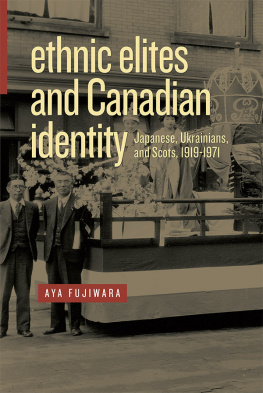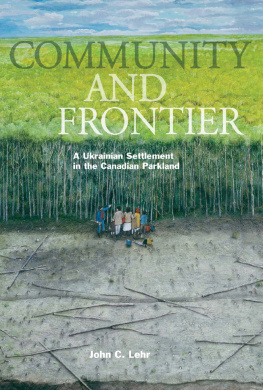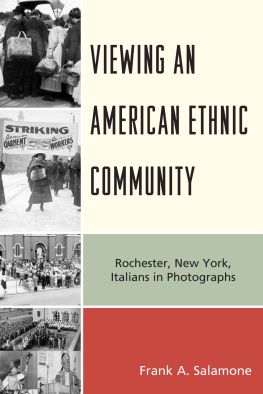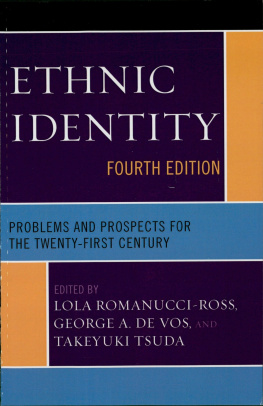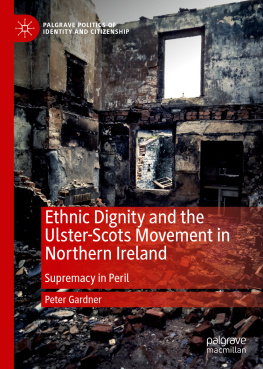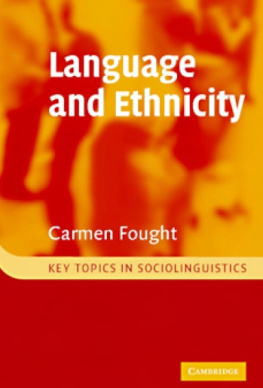My first appreciation goes to Professor Frances Swyripa at the University of Alberta. As my PhD supervisor, she provided helpful suggestions and criticisms and shared her knowledge with me in numerous meetings, classrooms, and personal conversations. While I am solely responsible for any flaws in this study, this book would not have been completed had it not been for her guidance. Special thanks also go to Professor Royden Loewen at the University of Winnipeg. As an editor of the series, he gave me many invaluable suggestions and much support. Since the first time I met him, he has inspired me on a number of occasions, exchanging ideas and thoughts. I would also like to express my sincere gratitude to Professor Gerhard Ens, whose insights into the theories of ethnicity helped me improve the methodological aspects of this book, and to Professor Bob Irwin, who served on my PhD thesis committee. My thanks also go to Mykola Soroka, who assisted me in translating Ukrainian documents.
This book is a tribute to the late Professor Kazuo Kimura, who taught me Canadian history at the University of Tsukuba, Japan, and was an author of several books on Canadian history. As one of a few Japanese historians who specialized in Canada, he was not only instrumental to my knowledge, but also contributed greatly to the development of Canadian studies in Japan. It was not an easy task to keep faith and interest in this field, which was largely neglected outside Canada. But he never gave up and kept writing until 2007, when he passed away, believing that foreign scholars could add different perspectives to Canadian history. The legacy that he left to this field in Japan was profound, and certainly survives in my studies.
My special thanks also go to Douglas McCalla, Professor Emeritus at the University of Guelph, for his support; Professor Viv Nelles and the Wilson Institute for Canadian History at McMaster University for providing me with a place to complete this book; and to David Carr, Glenn Bergen, Cheryl Miki, and Dallas Harrison at the University of Manitoba Press for their great assistance in the publication process.
I would also like to thank the helpful staff at the following archives: the Library and Archives Canada, the Public Archives of Nova Scotia, the Beaton Institute at Cape Breton University, Acadia University Archives, the University of British Columbia Archives, the Presbyterian Church Archives, and the Japanese Canadian National Museum. Myron Momryk, who was a senior archivist at the Library and Archives Canada, provided me with an introduction to the available resources.
I am also grateful for several sources of funding that I have received as a doctoral student to complete this project. They include the scholarships and teaching assistantships at the Department of History and Classics, University of Alberta, the Darcovich Memorial Scholarship from the Canadian Institute of Ukrainian Studies, the Izaak Walton Killam Memorial Scholarship from University of Alberta and the Killam Trust.
Finally, I would like to express my appreciation to David R. Marples for his moral support at many difficult times, and scholarly insights for the entire course of completing this book. I also thank my parents, Kae and Katsuaki Fujiwara, for their encouragement.
A portion of Chapter 2 was first published as The Myth of the Emperor and the Yamato race: The Role of the Tairiku nipp in the Promotion of Japanese-Canadian Transnational Ethnic Identity in the 1920s and the 1930s, Journal of the Canadian Historical Association 21, 1 (2010): 3758.
LIST OF ACRONYMS
AUUC: Association of United Ukrainian Canadians
BCSC: British Columbia Security Commission
CBC: Canadian Broadcasting Corporation
CCF: Co-operative Commonwealth Federation
CCJC: Co-operative Committee on Japanese Canadians
CJA: Canadian Japanese Association
FLQ: Front de libration du Qubec
JACL: Japanese American Citizens League
JCCA: Japanese Canadian Citizens Association
JCCC: Japanese Canadian Citizens Council
JCCD: Japanese Canadian Committee for Democracy
JCCL: Japanese Canadian Citizens League
JCRC: Japanese Canadian Research Collection
LAC: Library and Archives Canada
NATO: North Atlantic Treaty Organization
NJCCA: National Japanese Canadian Citizens Association
NMEG: Nisei Mass Evacuation Group
PANS: Public Archives of Nova Scotia
RCMP: Royal Canadian Mounted Police
UCB: Ukrainian Catholic Brotherhood
UCC: Ukrainian Canadian Committee
UCUSU: Ukrainian Canadian University Students Union
UHO: United Hetman Organization
ULFTA: Ukrainian Labour-Farmer Temple Association
UNF: Ukrainian National Federation
USRL: Ukrainian Self-Reliance League
USSR: Union of Soviet Socialist Republics
SELECTED BIBLIOGRAPHY
Primary Sources
Books
Anderson, James T.M. The Education of the New Canadian: A Treatise on Canadas Greatest Education Problem. London: J.M. Dent and Sons, 1918.
Beer, Henry R. Country Roads: Rural Pictou Country Nova Scotia. Halifax: Petheric Press, 1974.
_____. The Pictou Plantation. Corner Brook: n.p., 1967.
Black, Norman. From Citizens to RefugeesIts Happening Here! Toronto: CCJC, 1945.
Calder, Jenni. Scots in Canada. Edinburgh: Luath Press, 2003.
Campbell, Wilfred. The Scotsman in Canada. London: S. Low Marston, 1911.
Committee of the Canadian Teachers Federation. The Democratic Way: The Air We Breathe. No. 1. Ottawa: Canadian Citizenship Council; Toronto: Canadian Association for Adult Education, 1951.
_____. The Democratic Way: Freedom of Conscience. No. 4. Ottawa: Canadian Citizenship Council; Toronto: Canadian Association for Adult Education, 1951.
_____. The Democratic Way: Im Free to Choose. No. 2. Ottawa: Canadian Citizenship Council; Toronto: Canadian Association for Adult Education, 1951.
Davies, R.A. This Is Our Land: Ukrainian Canadians against Hitler. Toronto: Progress Books, 1943.
Dawson, C.A. Group Settlement: Ethnic Communities in Western Canada. Toronto: Macmillan Company of Canada, 1936.
Dunn, Charles W. Highland Settler: A Portrait of the Scottish Gael in Nova Scotia. Toronto: University of Toronto Press, 1953.
England, Robert. The Colonization of Western Canada: A Study of Contemporary Land Settlement. London: P.S. King, 1936.
Foster, Kate A. Our Canadian Mosaic. Toronto: Dominion Council, YWCA, 1926.
Fowke, Edith. They Made Democracy Work: The Story of the Co-operative Committee on Japanese Canadians. Toronto: CCJC and JCCA, 1951.
Gerus, Oleh W., and Denis Hlynka, eds. The Honourable Member for Vegreville: The Memoirs and Diary of Anthony Hlynka , MP. Calgary: University of Calgary Press, 2005.
Gibbon, John M. Canadian Mosaic: The Making of a Northern Nation. Toronto: McClelland and Stewart, 1938.
_____. Scots in Canada: A History of the Settlement of the Dominion from the Earliest Days to the Present Time. Toronto: Musson, 1911.
Glynn-Ward, Hilda. The Writing on the Wall: Chinese and Japanese Immigration to BC, 1920. 1921. Reprint, with an introduction by Patricia Roy, Toronto: University of Toronto Press, 1974.
Ito, Roy. We Went to War: The Story of the Japanese Canadians Who Served during the First and Second World Wars. Stittsville: Canadas Wings, 1984.
Kirkconnell, Watson. Canada, Europe, and Hitler. Toronto: University of Toronto Press, 1939.
_____. Canadians All. Ottawa: Minister of National War Service, 1941.
_____. Canadian Overtones. Winnipeg: Columbia Press, 1935.
_____. Our Communists and the New Canadians: An Address Delivered before a Meeting of the Canadian Club at Toronto, Canada, on Monday, February 1, 1943. Toronto: Southam Press, 1943.

